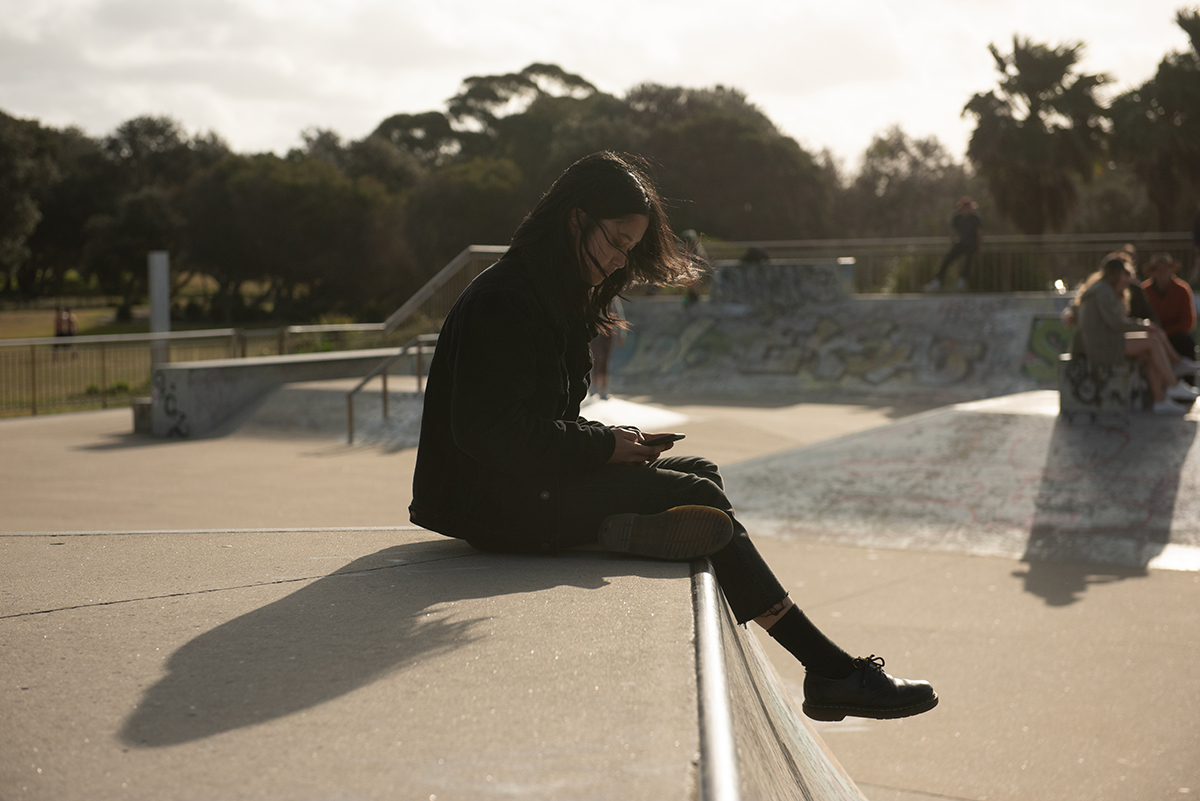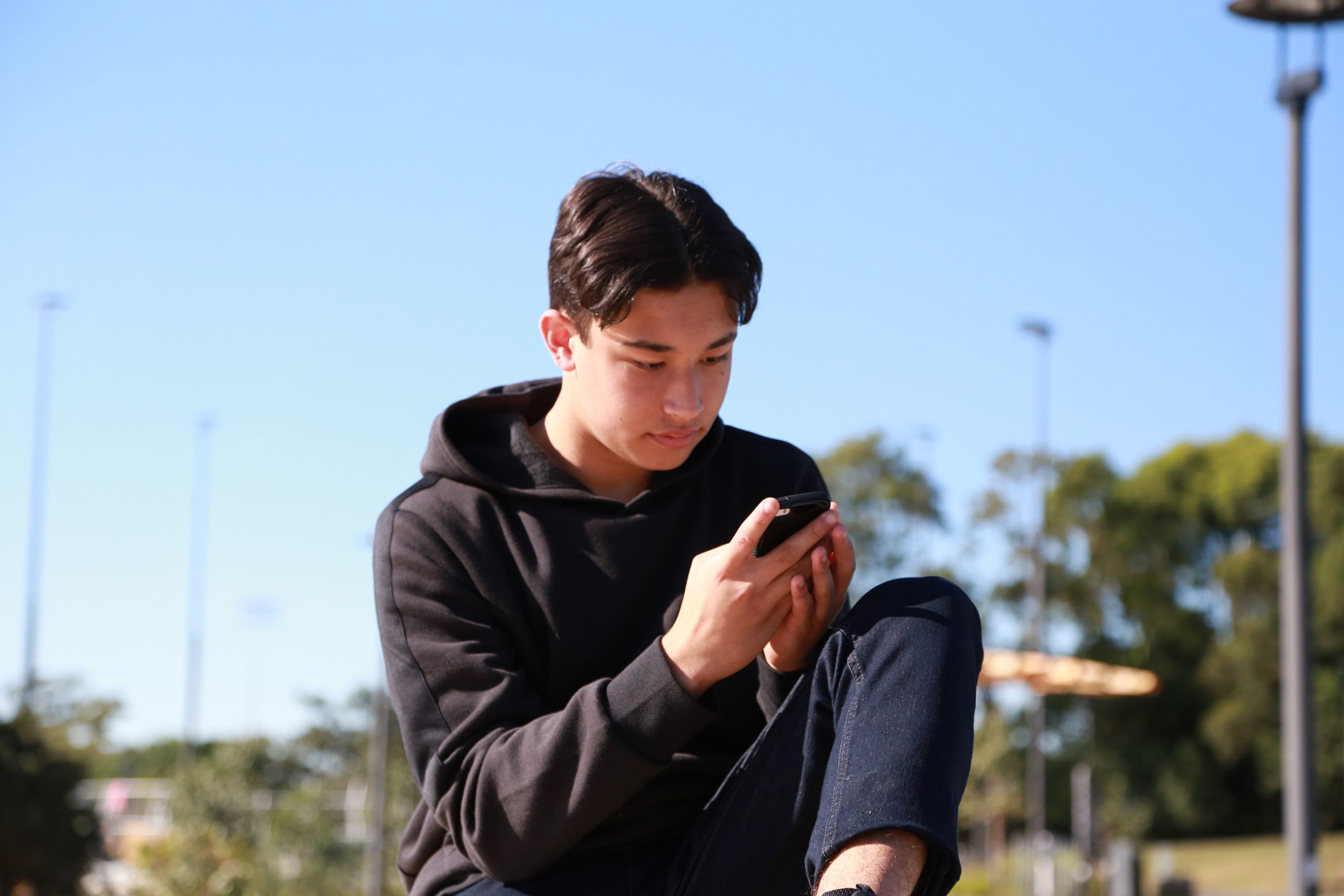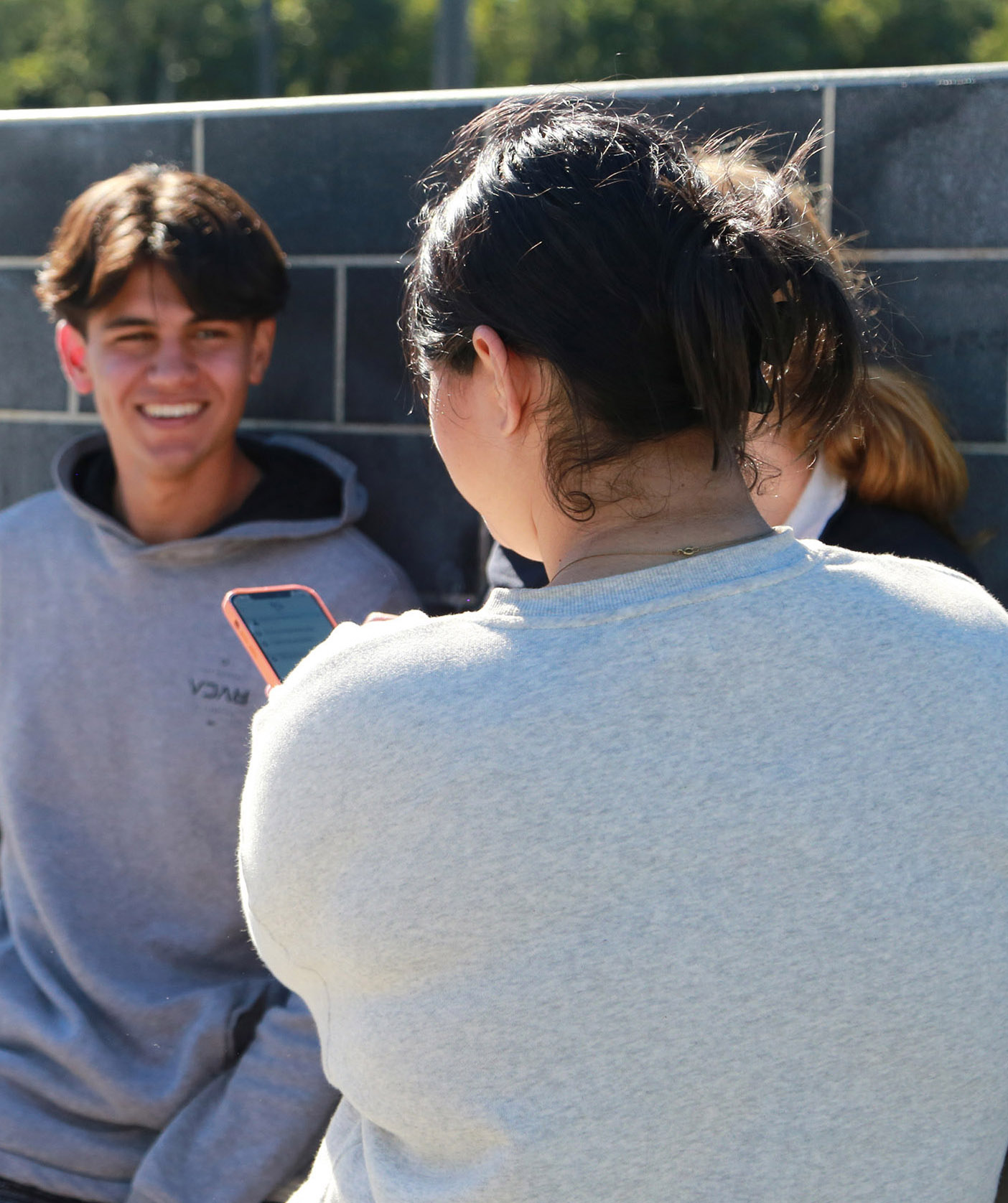Digital connection: A lifeline for youth mental health

While the recent news of Social Media bans for young people in Australia aims to address concerns like cyberbullying and exposure to harmful content, it’s crucial to acknowledge the benefits these platforms can offer. For many young people grappling with mental health challenges, social media can serve as a vital lifeline.
The stigma surrounding mental health often discourages young people from seeking help. Face-to-face interactions can be intimidating, especially for those who are shy, anxious, isolated or vulnerable. According to the Mission Australia Youth Survey 2024, 64% of young people go to friends, and 58% to parents for help, however, 30% struggle to ask for help.

Social media platforms and other digital tools can provide a safe space for these individuals to connect with like-minded peers, explore their interests, and find support within communities that share their passions.
At the Harrison Riedel Foundation, we acknowledge the need to mitigate the negative impacts of social media, such as cyberbullying and exposure to inappropriate content. We believe that greater control over the content available to young people is essential. At the same time, we firmly believe that digital platforms possess immense potential for positive change, particularly in the realm of mental health.
The digital dawn: A new era of connection
The rise of digital communication has fundamentally transformed how we interact. Social media platforms, messaging apps, and online communities have become integral to our lives, facilitating learning, identity exploration, family connections, friendships, and support networks. These digital interactions complement and extend offline experiences.
For teenagers, social media plays a crucial role in connecting with peers, expanding their understanding of school subjects, and engaging in both formal and informal learning. It can also connect them with online communities that support individuals with disabilities, medical conditions, or diverse sexual orientations and gender identities.
Digital platforms help young people feel like they have a voice. According to the Mission Australia Youth Survey 2024, 52% of young people feel proud to be part of their community, but only 35% believe they have a say in important matters. Digital connections enable them to feel included in the conversation and stay connected with extended family and friends, fostering a sense of belonging within both local and global online communities.

Finding your digital community
Many young people find solace and support through digital platforms. By connecting with like-minded individuals and seeking guidance from trusted adults online, they can overcome challenges and build resilience.
One YourCrew user shared: “As an introvert, connecting online is incredibly valuable. I struggle to express myself in face-to-face settings as I never have the loudest voice in the room. Online platforms provide a safe space to connect and share my feelings openly and honestly within my support network, ensuring I can access help when needed. Without digital connection, I wouldn’t feel as supported or be able to communicate my feelings as freely with my peers and family.”
Digital platforms provide significant benefits for mental health support. The option to share concerns privately can help reduce the fear of judgment and stigma, while the 24/7 availability ensures access to advice and help at any time. Online communities also play a valuable role in normalising conversations around mental health, fostering connection, and easing feelings of isolation. However, it’s important to balance anonymity with accountability to ensure that these spaces remain safe and constructive for everyone.
Navigating the new digital landscape
While online support groups and tools will still exist following a social media ban for certain age groups, it will be more challenging for young people to find and access them. It’s also important to acknowledge young people may find ways to circumvent restrictions to join platforms that now cater for older groups and do not assess their content closely.
As parents, guardians, and trusted adults, we can play a crucial role in guiding young people towards safe and positive digital experiences:
- We can – encourage open and honest conversations about mental health and offer alternative avenues to connect beyond face-to-face settings. This could be through an app like YourCrew or by suggesting safe written alternatives.
- We can – equip young people with the knowledge and skills to use technology responsibly and critically. Knowing where to access self-help resources, how to connect with like-minded people in safe forums and ensuring they understand which resources are from trusted sources is a great place to start.
- We can – promote healthy digital habits, such as setting screen time limits and encouraging regular breaks.
- We can – lead by example and demonstrate respectful online behaviour.
YourCrew: A beacon of hope
The free YourCrew app provides a valuable resource for young people, empowering them to connect with trusted adults and friends with the simple touch of a button. While not a social media platform, YourCrew cultivates a supportive community that not only prioritises mental health outcomes for the next generation but also ensures access to the positive aspects that social media can offer, all within a safe and controlled environment.
One uncle who Crew’s for his nephew shared: “With the YourCrew app, I can stay updated on how my nephew is doing without being intrusive. His check-ins can provide a clear picture of when he might need extra support, allowing me to offer help at the right time in a way that feels natural and respectful without overstepping.”
Help raise awareness of youth mental health and encourage others to seek support by downloading and sharing the YourCrew app or web version with your network. Together we can create a world where everyone feels supported and connected.